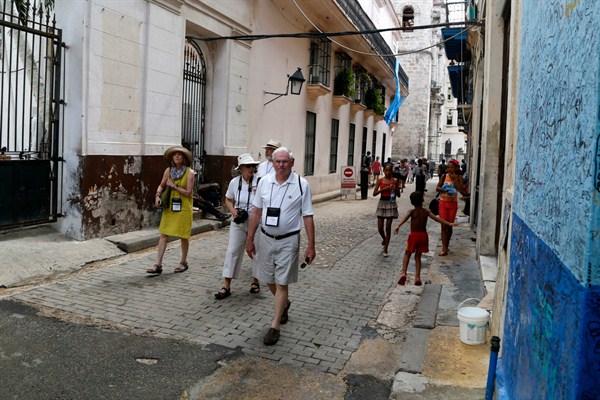Last month, The New York Times reported that the growing number of tourists in Cuba is dramatically increasing the demand for food and leaving ordinary Cubans without many basic staples. In a phone interview, William LeoGrande, a professor of government and a specialist in Latin American politics at American University, discusses the effects of tourism in Cuba.
WPR: What positive impacts has Cuba seen from expanded tourism in recent years?
William LeoGrande: Tourism has become one of the leading economic sectors in Cuba. Last year, around 4 million foreign visitors came to the island, generating $2.8 billion in revenue—only the export of medical services generated more revenue. And it is growing rapidly. Last year saw about a 13 percent increase in tourism revenues over 2015. In an economy that has been suffering lately from a shortfall in oil deliveries from Venezuela and the decline of commodities prices, particularly nickel, tourism has been the one bright spot. Tourism has really been the engine behind the growth of the private sector. Private restaurants and bed-and-breakfast establishments are the principal kinds of enterprises that Cubans have started as small private businesses, and a lot of that is fueled by the tourist trade.

